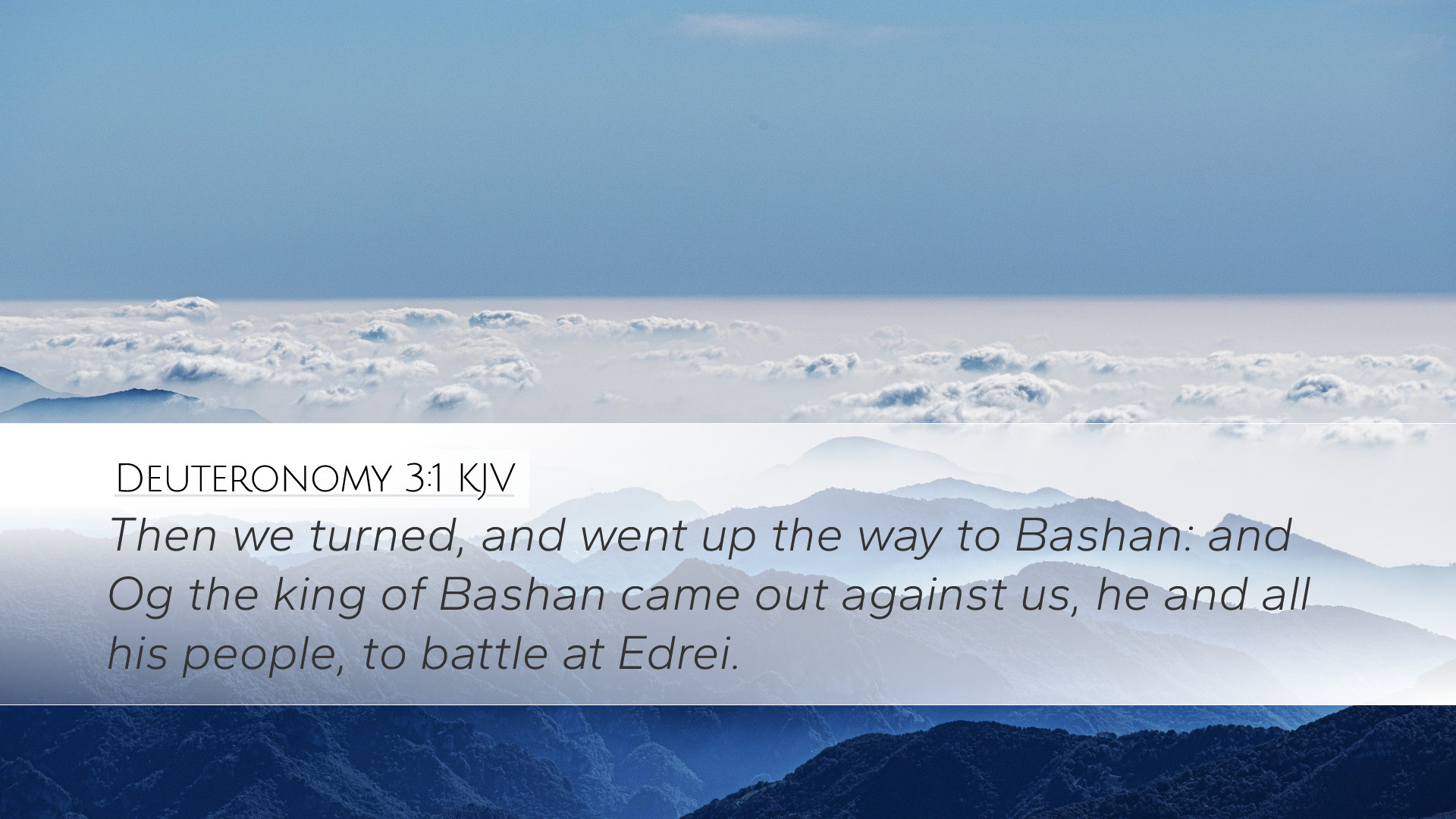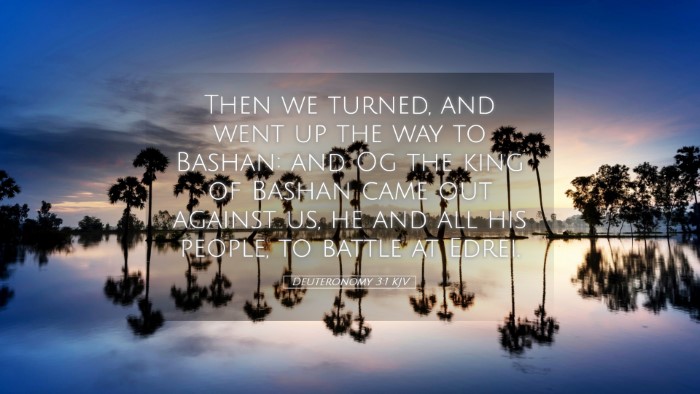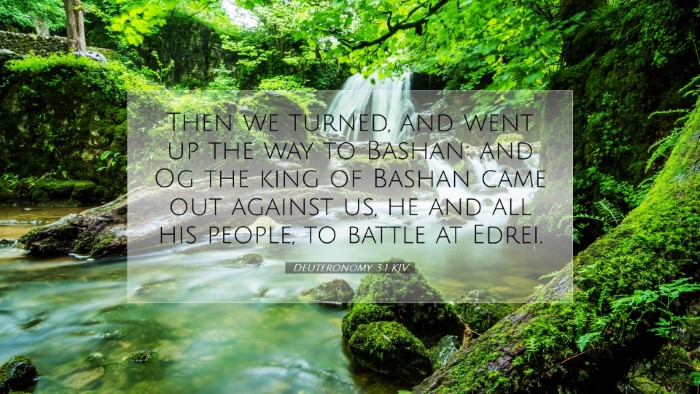Commentary on Deuteronomy 3:1
Verse: "Then we turned, and went up the way to Bashan: and Og the king of Bashan came out against us, he and all his people, to battle at Edrei."
Introduction
This verse marks a significant moment in the historical narrative of Israel as they approach the Promised Land, particularly the region of Bashan, ruled by King Og. This commentary synthesizes insights from Matthew Henry, Albert Barnes, and Adam Clarke to provide a comprehensive understanding of the verse's theological and historical context.
Historical Context
Deuteronomy is primarily a series of speeches delivered by Moses as the Israelites prepare to enter Canaan after years of wandering in the wilderness. The mention of Og, the king of Bashan, introduces us to a formidable opponent. This context demonstrates the continued challenges that the Israelites faced in their quest for the Promised Land.
Key Themes
- The Sovereignty of God: Throughout Israel's journey, God’s sovereignty is evident. The encounter with Og was orchestrated by God to demonstrate His power and fulfill His promises to Israel.
- God's Deliverance: The narrative showcases God's faithfulness in delivering Israel from their adversaries. Despite the size and might of Og, God would grant victory to His people.
- Fear and Faith: The Israelites often faced fear in the face of giants and powerful kings. This verse serves as a reminder of the importance of faith amidst daunting challenges.
Moses' Perspective
Moses recounts this incident to remind the Israelites of God’s previous deliverances. According to Matthew Henry, this recollection was meant to reinforce the faith of the people, encouraging them as they move forward toward conquest. The awareness of past victories can be a source of strength and motivation for future endeavors.
Analysis of Key Points
Og, King of Bashan
Og is characterized as a giant among giants, his size and strength becoming synonymous with the fearsome opponents the Israelites faced. Albert Barnes notes that Og's power was notable, and his very existence served as an intimidating factor. Despite this, Og’s reign was ultimately subject to God's will, illustrating the fundamental Christian belief in divine authority over earthly kingdoms.
Edrei: The Battleground
Edrei, the location where the battle took place, is noteworthy. Adam Clarke comments on the strategic significance of cities like Edrei in the Biblical narrative. It was a stronghold and indicative of the challenges Israel faced. The confrontation there not only serves as a physical battleground but also symbolizes the spiritual warfare that accompanies the journey of faith.
Implications for Israel
For the Israelites, this confrontation was a test of faith. They were reminded of their identity as God’s chosen people, called to trust in His promises despite formidable threats. As they faced Og, they were prompted to recall not only their history of deliverance but also the covenantal promises made to them by God.
Lessons for Today
The lessons of Deuteronomy 3:1 resonate powerfully today:
- Faith in Adversity: Just as Israel faced giants, believers today encounter their own metaphorical giants. This verse encourages a posture of faith, trusting in God’s deliverance.
- Remembering God's Faithfulness: Reflection on God’s past actions fortifies faith. Regularly recalling instances of divine intervention nurtures trust.
- Preparation for Battle: Understanding that the Christian life engages in spiritual warfare prepares believers to approach challenges with courage and reliance on God.
Conclusion
Deuteronomy 3:1 serves as a powerful reminder of the covenantal relationship between God and Israel. The encounter with Og and the battle at Edrei were not merely historical events but were laden with theological significance. Through insights from the public domain commentaries, we recognize the enduring relevance of this verse in understanding God’s sovereignty, the nature of faith in adversity, and the continuous call to remember His faithfulness.


